SIP-adus Workshop 2021
Abstracts & Speakers List
- Nov. 9 [Tue.]
- Opening Session / Regional Activities
- Impact Assessment
- Service and Business Implementation /
FOTs + Human Factors - Japanese Government
- Nov. 10 [Wed.]
- Dynamic Map
- Connected Vehicles
- Safety Assurance
- Cybersecurity
- Closing
- Service and Business Implementation / FOTs
- In this session, we will discuss how we can think about the feasible business model for automated driving and how to integrate autonomous driving into local transport.
- Human FactorsOverview
- Public transport services using automated shuttles and busses are expected to be a key solution to the social problem of limited mobility in rural areas and have been tested in fields in various countries. High level safety is essential for social implementation and wide spread of the services. In automoted mobility services, both system and service are designable. The larger degree of freedom in design is expected to bring breakthroughs for the implementation but may raise new risks due to the complexity. In this session, human factor challenges for safety of the automated mobility services in various countries will be shared.
The "Service and Business Implementation / FOTs" and "Human Factors" sessions will be held jointly this year.
Moderator
-

Yurie Toyama
Service and Business Implementation / FOTs
Researcher
Smart Region Division
Mitsubishi Research Institute
JapanYurie Toyama is a researcher in the Smart Region Division at Mitsubishi Research Institute. She currently involves in several projects related with automated driving and smart mobility from various aspects, such as technical, business developing, and policy making. Throughout her time at MRI, she has provided technical and project management support to Japanese industries and governments. She is interested in the coordination of new technology for mobility, such as automated driving, with urban transportation planning.
She holds a M.Eng in transport planning and a B.Eng in civil engineering. -
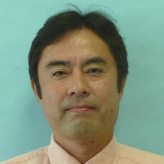
Satoshi Kitazaki
Human Factors
Director
Human-Centered Mobility Research Center (HCMRC)
National Institute of Advanced Industrial Science and Technology (AIST)
JapanDr. Kitazaki received his Bachelor’s degree and Master’s degree of engineering from Kyoto University Japan in 1983 and 1985, and Ph.D. from the University of Southampton UK in 1995. He had been working for Nissan Motor as a human-factors engineer from 1985 till 2012. After working as a professor at the University of Iowa US from 2012 to 2015, he has been working at National Institute of Advanced Industrial Science and Technology (AIST), Japan, as the director of Automotive Human Factors Research Center from 2015 to March 2020 and the director of Human-Centered Mobility Research Center from April 2020 to now. Dr. Kitazaki also has been leading a national project of Japan on human factors in automated driving, phase 1 (2016-2019) and phase 2 (2019-2022).
Speaker
-
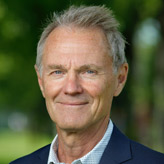
Jan Hellåker
Chairman
Drive Sweden
SwedenJan Hellåker has been Chairman of Drive Sweden since 2019. Before assuming the Chairmanship, Jan was the Program Director during Drive Sweden’s first four years of operation.
Prior to joining Drive Sweden, Jan spent 25+ years in advanced research within the Volvo Group in Sweden and USA, his last position there was Vice President of Transport Solutions & Services.
In 1999 he was the founder and first CEO of WirelessCar, a global telematics service provider to vehicle manufacturers.
Jan started his career with 8 years at Ericsson, after earning his M.Sc. in Electrical Engineering from Chalmers University of Technology, in Gothenburg, Sweden. -
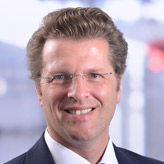
Lutz Eckstein
Director
Institute for Automotive Engineering (ika)
RWTH Aachen University
GermanyProf. Dr.-Ing. Lutz Eckstein chairs the Institute for Automotive Engineering of RWTH Aachen University, one of the leading technical universities in Germany. He has been appointed in 2010, having been responsible for safety assurance of Advanced Driver Assistance Systems at Daimler AG followed by senior management positions in the Electrics/Electronics Division of BMW AG.
Lutz Eckstein dedicates his work to improving Active Safety while at the same time creating new dimensions of driving experience, which is documented by numerous patents and publications. He is deeply involved in the PEGASUS project family addressing safety assurance of automated driving and at the same time coordinator of UNICARagil, a lighthouse project funded by the German Ministry for Science and Education (BMBF) aiming at an agile architecture for driverless vehicles by combining the competences of eight German universities and selected companies.
Selected memberships and roles include chairing the VDI-society Vehicle and Traffic Technology (VDI-FVT),membership of the Supervisory Board of Aldenhoven Testing Center GmbH (ATC), chairman of the Board of fka GmbH and fka Silicon Valley. Most recently, Lutz Eckstein has been invited to join the Scientific Board of the German Federal Ministry for Traffic and Digital Infrastructure. -
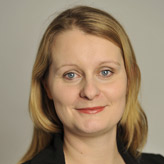
Katrin Schwager
Project Manager
Innovation and Change
Hamburger Hochbahn AG
GermanySince 2019, responsible for project coordination in the HEAT project and in the innovation area of Hamburger Hochbahn.
Has worked for Hamburger Hochbahn in various areas since 2012 among other things in the development of passenger counting and forecasting.
2009 Degree in Geography from the Georg August University of Göttingen, Germany. -
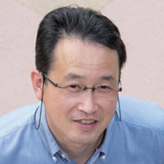
Shin Kato
Prime Senior Researcher
Human-Centered Mobility Research Center
National Institute of Advanced Industrial Science and Technology(AIST)
JapanShin Kato received his Doctor of Engineering degree from Meiji University, in 1994. He is a Prime Senior Researcher at Human-Centered Mobility Research Center, Department of Information Technology and Human Factors, National Institute of Advanced Industrial Science and Technology (AIST). His research interests are in the fields of ITS (Intelligent Transport Systems) for automated driving system and driver assistance system, machine vision, sensing, communications, navigation, HMI (Human Machine Interface) and control for intelligent vehicles and field robotics. He is a Member of the RSJ, IEICE, IATSS and JSAE.
-
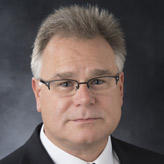
Daniel McGehee
Professor and Director
National Advanced Driving Simulator and Dept of Industrial and Systems Engineering
University of Iowa
The United States of AmericaProfessor Daniel V. McGehee is an internationally recognized vehicle safety and driver attention researcher who is director of the National Advanced Driving Simulator and a professor in the department of Industrial and Systems Engineering, Emergency Medicine, and Public Health.
For over 25 years Dr. McGehee has conducted research and design in driver attention and advanced vehicle safety systems as they relate to driver performance. He developed the first prototype forward collision warning systems to mitigate driver distraction for General Motors in the early 1990s and conducted one of the first automated vehicle simulator trials in the 1994. He is currently a member of the US delegation of the Trilateral Human Factors in Automation group that splits its time between Europe, Japan and the US. He earned his PhD in Human Factors from the University of Leeds in the UK. -

Timothy Haile
Executive Director
All Departments
Contra Costa Transportation Authority
The United States of AmericaTim Haile, PE serves as Executive Director and is responsible for the overall management of the Contra Costa Transportation Authority (CCTA), including implementation of projects and programs identified in CCTA’s voter-approved sales tax Measure C and Measure J, the Growth Management Program, the Congestion Management Program, as well as policies and procedures, the board-approved budget, and all administrative functions. He previously served as CCTA’s Deputy Executive Director, Projects and has more than 23 years of experience in program management, public works, and transportation projects.
Tim has been an active leader in the transportation industry and community, serving as the Communications Chair of the Transportation Research Board Managed Lanes Committee and Board Member of the California Transportation Foundation. In 2014, he was named one of the “Top 20 under 40 Engineering Professionals in California” by Engineering News Record Magazine.
Tim joined the Authority in May 2017 bringing more than twenty years of experience in transportation program and project management. He is a registered Professional Engineer and earned his Bachelor’s Degree in Civil Engineering from California Polytechnic State University, Pomona. -
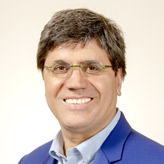
Habib Shamskhou
President
Engineering/Program Management/Technology Facilitation
Advanced Mobility Group
The United States of AmericaHabib Shamskhou is President of Advanced Mobility Group and co-founder of the GoMentum Station Program in Northern California. He brings nearly 31 years of experience managing a wide variety of transportation projects.
Habib is a recognized authority on emerging advanced transportation and digital infrastructure technologies with expertise in technology facilitation, public-private partnerships, and program management of large-scale technology-based infrastructure projects.
His latest collaborations include technology facilitation and program management for two of Contra Costa Transportation Authority’s federal grants from the Advanced Driving Systems and Advanced Transportation and Congestion Management Technologies Deployment (ATCMTD) programs. The ADS program is collecting and analyzing data to support federal policy and rulemaking around ADS safety measures. The ATCMTD grant is developing a Mobility as a Service application to provide travelers with multimodal complete trip planning service. Recent developments at GoMentum station include the Vehicle to Everything Signal Lab (V2X Signal Lab) and Dynamic Personal Micro Transit initiatives.
Habib has been involved in the implementation of the I5/I90/SR520 Active Traffic Management System (ATMS) Design Build project in Seattle, developing Corridor System Management Plans (CSMPs) for Caltrans, and executing several ITS SMART corridor and system integration projects in Alameda and Contra Costa Counties, as well as ITS projects in Florida, Arizona, Texas, Nevada, and Oregon. -
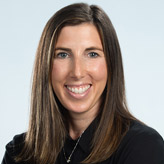
Jordana Maisel
Assistant Professor
Urban and Regional Planning
University at Buffalo, State University of New York
The United States of AmericaJordana L. Maisel, PhD is an Assistant Professor in the Department of Urban and Regional Planning at the University at Buffalo (UB) and Director of Research at the Center for Inclusive Design and Environmental Access. Dr. Maisel has led research in the areas of public transportation, street infrastructure, post occupancy evaluations, and accessible housing policy. She co-directs the Rehabilitation Engineering Research Center on Accessible Public Transportation (RERC-APT) and the RERC on Universal Design and the Built Environment, both funded by the National Institute on Disability, Independent Living, and Rehabilitation Research (NIDILRR). She is also a co-PI on a NIDILRR field-initiated research project on Independent Wheelchair Securement and a Social Innovation grant from Toyota to study ride-hailing. Dr. Maisel co-authored the Goals of Universal Design, Universal Design: Creating Inclusive Environments (2012), Accessible Public Transportation (2018), and Inclusive Design: Implementation and Evaluation (2018). She earned her B.S. in Human Development from Cornell University, and her Master’s degree in Urban Planning and her PhD in Industrial and Systems Engineering from UB.

